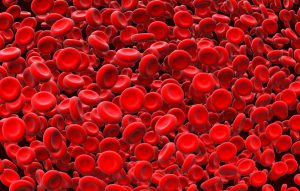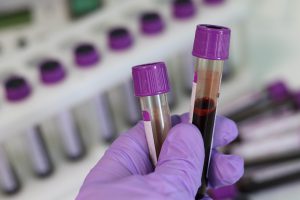Iron deficiency is the most common nutritional deficiency, and the leading cause of anemia, in the United States. This deficiency is caused by an increased need for iron in the body, or a decrease in the absorption of iron. But in rare cases, people can absorb too much iron in their body, which causes a condition known as hemochromatosis. Too much iron stored in your body can cause many complications and even lead to life-threatening conditions. So what is hemochromatosis, and how is it treated?
What Causes Hemochromatosis?

As mentioned above, hemochromatosis is a medical condition marked by an inability to get rid of excess iron. Iron can build up in your liver, skin, heart, pancreas, joints, and pituitary gland, and cause serious problems.
In the United States, around 1 in 300 Caucasian people have this condition, and many do not realize they have it. It is more common in males than it is in females; if females do have it, symptoms generally will not appear until after menopause. There are two forms of hemochromatosis: primary and secondary.
1. Primary hemochromatosis
Primary hemochromatosis, also known as hereditary hemochromatosis, is a genetic disorder caused by the inheritance of two defective hemochromatosis (HFE) genes, or the gene that controls how much iron your body absorbs from food. If you inherit only one abnormal HRE gene, you’re unlikely to develop hemochromatosis, but you will be a carrier of the gene mutation, and will be able to pass the mutation to your children.
2. Secondary hemochromatosis
Secondary hemochromatosis is a buildup of iron that is not caused by a genetic abnormality, but rather by a separate condition. With this type of hemochromatosis, your red blood cells release too much iron into the body because the cells are too fragile to hold the iron. Risk factors for secondary hemochromatosis include:
- Alcohol dependency
- Family history of diabetes, heart disease, or liver disease
- Taking iron and vitamin C supplements
- Blood transfusions
Symptoms
Many people who have hemochromatosis are unaware they have it because there are not many noticeable symptoms. Some early signs and symptoms of it will look like those of other conditions, which can mean that doctors will often mistake it for something else. Some common symptoms include:
- Fatigue and weakness
- Joint pain
- Abdominal pain
- Diabetes
- Impotence
- Heart failure
- Bronze or gray skin color
- Weight loss
- Memory fog
If you have hereditary hemochromatosis, you will have the condition from birth, but most symptoms will not appear until later in life. Symptoms do not usually become apparent until around age 40 in men, and after age 60 in women. This is because women typically won’t develop any symptoms until after menopause, when they are no longer losing iron due to menstruation.
Complications
If you leave hemochromatosis untreated, it can lead to complications in joints and organs where the excess iron tends to be stored. The complications can include:
- Liver problems– Cirrhosis, or permanent scarring of the liver, can occur. A liver transplant may be necessary in this case.
- Diabetes– Excess iron can damage the pancreas, leading to diabetes.
- Reproductive problems– Too much iron can lead to erectile dysfunction and/or the loss of sex drive in both men and women.
- Heart disease– Your heart’s ability to circulate enough blood for your body’s needs will be affected, causing congestive heart failure. It can also cause abnormal heart rhythms.
Treating hemochromatosis
There are several different treatments that can help manage the high iron levels in your body, including: 
- Phlebotomy– This is the main medical treatment for hemochromatosis. It involves taking blood and iron from the body: a pint of blood will be removed once or twice a week until iron levels are normal, then treatment will be every two to four months.
- Chelation– This involves a doctor injecting drugs or giving you pills to help your body expel the excess iron in your urine or stool. This is a more expensive treatment option, and can have side effects such as pain and flu-like symptoms.
You can also take measures to change your lifestyle to help manage the condition. Make sure to have annual blood tests to monitor your iron levels and avoid any vitamin supplements, especially vitamin C and iron. In addition, you should stick to a healthy diet, avoid any alcohol, and keep a log of your iron levels to monitor any changes.
If you are experiencing any of the symptoms mentioned above, speak to a doctor immediately. If you are worried about the cost of treating this disease, remember that having a good health insurance policy is key.
EZ offers a wide range of health insurance plans from top-rated insurance companies in every state. And because we work with so many companies and can offer all of the plans available in your area, we can find you a plan that saves you a lot of money, even hundreds of dollars, even if you don’t qualify for a subsidy. There is no obligation, or hassle, just free quotes on all available plans in your area. To get free instant quotes, simply enter your zip code in the bar above, or to speak to a local agent, call 888-350-1890.
